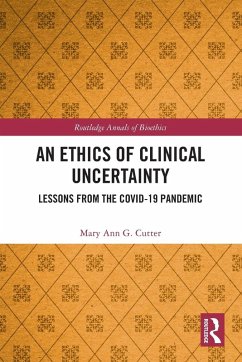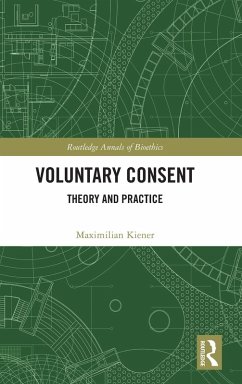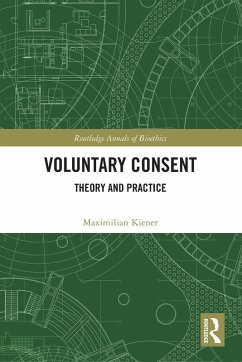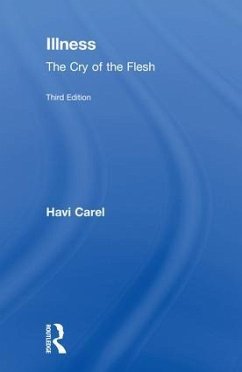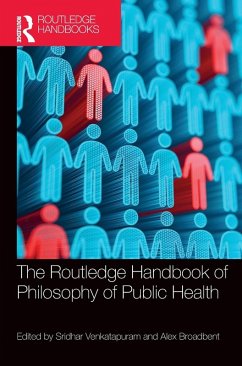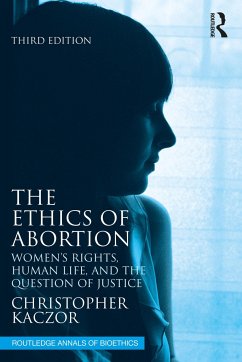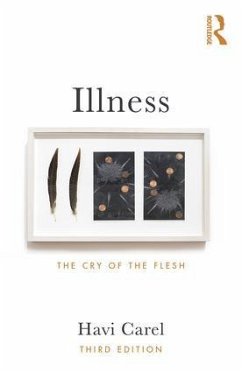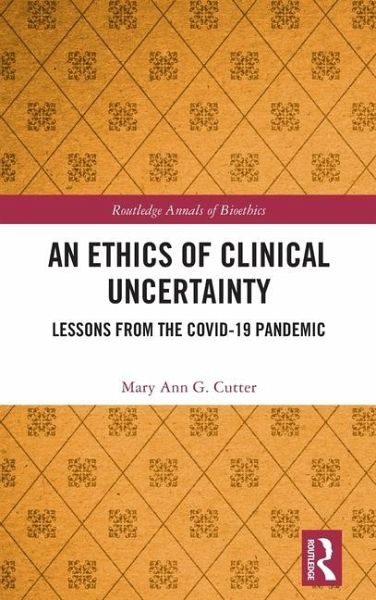
An Ethics of Clinical Uncertainty
Lessons from the COVID-19 Pandemic
Versandkostenfrei!
Versandfertig in 6-10 Tagen
154,99 €
inkl. MwSt.
Weitere Ausgaben:

PAYBACK Punkte
77 °P sammeln!
This book explores the ethical implications of managing uncertainty in clinical decision-making during the COVID-19 pandemic. It develops an ethics of clinical uncertainty that brings together insights from the clinical and biomedical ethical literatures.The book sets out to recognize the central role uncertainty plays in clinical decision-making and to acknowledge the different levels, kinds, and dimensions of clinical uncertainty. It also aims to aid clinicians and patients in managing clinical uncertainty and to recognize the ethical duty they have to manage clinical uncertainty. The book a...
This book explores the ethical implications of managing uncertainty in clinical decision-making during the COVID-19 pandemic. It develops an ethics of clinical uncertainty that brings together insights from the clinical and biomedical ethical literatures.
The book sets out to recognize the central role uncertainty plays in clinical decision-making and to acknowledge the different levels, kinds, and dimensions of clinical uncertainty. It also aims to aid clinicians and patients in managing clinical uncertainty and to recognize the ethical duty they have to manage clinical uncertainty. The book addresses four ethical duties related to clinical uncertainty: (1) to advance the welfare of those in clinical medicine, (2) to respect the rights of those in clinical medicine, (3) to promote just access to health care, and (4) to care for one another in clinical medicine. These duties took on select urgency during the COVID-19 pandemic because clinical risk assessments about COVID-19 were limited, we were asked to give informed consent in the context of limited and changing knowledge, the pandemic unearthed myriad problems about the distribution of health care, and the pandemic raised questions about how we care for each other in medicine.
An Ethics of Clinical Uncertainty will appeal to scholars, advanced students, and medical professionals working in philosophy of medicine, biomedical ethics, clinical medicine, nursing, public health care, and gerontology.
The book sets out to recognize the central role uncertainty plays in clinical decision-making and to acknowledge the different levels, kinds, and dimensions of clinical uncertainty. It also aims to aid clinicians and patients in managing clinical uncertainty and to recognize the ethical duty they have to manage clinical uncertainty. The book addresses four ethical duties related to clinical uncertainty: (1) to advance the welfare of those in clinical medicine, (2) to respect the rights of those in clinical medicine, (3) to promote just access to health care, and (4) to care for one another in clinical medicine. These duties took on select urgency during the COVID-19 pandemic because clinical risk assessments about COVID-19 were limited, we were asked to give informed consent in the context of limited and changing knowledge, the pandemic unearthed myriad problems about the distribution of health care, and the pandemic raised questions about how we care for each other in medicine.
An Ethics of Clinical Uncertainty will appeal to scholars, advanced students, and medical professionals working in philosophy of medicine, biomedical ethics, clinical medicine, nursing, public health care, and gerontology.





